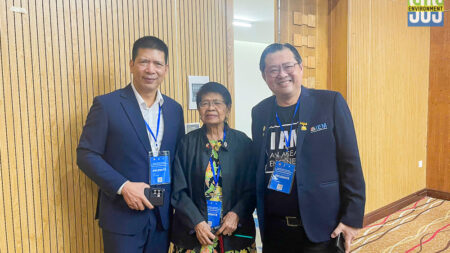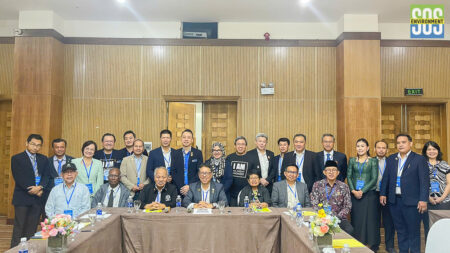EPP-VN PROGRAM: TOWARDS SUSTAINABLE AGRICULTURE IN VIETNAM
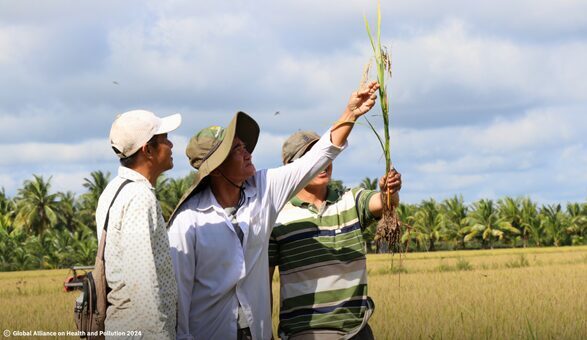
25/9/2025 – Vietnam’s agricultural sector, despite its pivotal role in the economy and rural livelihoods, is still facing increasing challenges to the environment and public health.
Another harmful practice is the open burning of straw. Burning straw releases PM2.5, carbon dioxide (CO₂), methane (CH₄), nitrous oxide (N₂O), and many other greenhouse gases, contributing to air pollution, climate change, and many respiratory diseases.
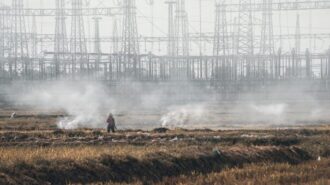
To address this situation, the Vietnamese Government has issued the Law on Environmental Protection 2020 and Decree No. 05/2025/ND-CP, which encourages sustainable farming and the utilization of agricultural by-products instead of burning them. Based on that policy, in 2022, the Environmental Pollution Program in Vietnam (EPP-VN) was implemented, chaired by the Global Alliance on Health and Pollution (GAHP) and funded by the UK Government through the UK Department for International Development and the Vietnam Association for Conservation of Nature and Environment (VACNE), undertaking an important component of assessing the current situation and proposing solutions to minimize the impact of open burning in agriculture on climate change, human health and biodiversity in Vietnam.
During the period 2022–2025, EPP-VN will implement five main action groups: Mapping open burning hotspots, building a scientific database on the impacts of straw burning on the environment and health; researching, testing and promoting sustainable alternatives; Communicating, raising awareness and training farmers; supporting policy development to create systemic change; and seeking opportunities to replicate successful models in other countries in the region and the world.
To date, many encouraging results have been recorded. In An Giang, models of utilizing straw to grow mushrooms, compost, or process it into animal feed have shown clear effectiveness. Biological solutions such as microbial mixtures help shorten the time to decompose straw from several months to just 14–15 days, both adding nutrients to the soil and reducing the need to use plant protection chemicals. In particular, mushroom cultivation using rice straw has proven to be economically viable: many households have recorded significant income increases and gradually abandoned the practice of burning rice straw.
Along with that, communication campaigns and community training have reached more than 600 people in 6 provinces. At the international level, 12 countries, including Indonesia and Bangladesh, have been identified as being able to learn from and apply the Vietnamese model to deal with similar challenges.
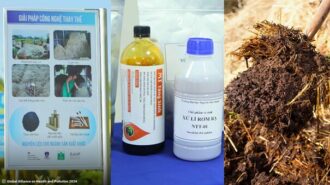
A clear example comes from the Mekong Delta. Here, using biological products to treat straw not only helps improve soil fertility but also brings in an average profit of 4 million VND per hectare. The case of Mr. Nguyen Thanh Ha, a farmer in An Giang, is a typical example. Previously, he often burned straw after each harvest, but after being trained, he boldly invested more than 200 million VND to build eight mushroom greenhouses, part of the cost supported by the program. He now earns about 24 million VND per month, double the income from traditional rice cultivation. “At first, we were skeptical, but when we saw the clear efficiency and profit, people changed their minds. Now, straw is no longer a waste but has become a valuable resource,” Mr. Ha shared.
Mr. Ha’s success among thousands of project participants from North to South reflects the spirit of EPP: connecting science and advanced methods with local practical needs, promoting cooperation and trust to create sustainable changes. When farmers see direct benefits, they not only accept but also actively replicate the solution.
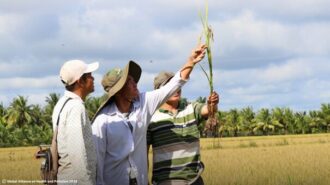
To disseminate the initial results, in November 2024, GAHP organized the EPP-VN Conference in Hanoi, bringing together a large number of researchers, policy makers, and farmers from many localities. The conference acknowledged the progress that Vietnam has made and discussed the possibility of replicating it in other countries in Asia and Africa, such as Bangladesh, Myanmar, and the Philippines. Many international delegates assessed the Vietnam model as a valuable experience to apply in the global context, facing similar pollution challenges. Maria Paola Lia, Executive Director of GAHP, said: “Vietnam has demonstrated a strong commitment to environmental protection through the implementation of national policies and active participation in UN environmental programs. In line with these efforts, the Global Alliance on Health and Pollution (GAHP) supports the government’s priorities by promoting sustainable practices that benefit both environmental quality and public health. We would like to thank the UK Department for Environment, Food and Rural Affairs (DEFRA) for funding and partnering with us on this important initiative.” Accordingly, Vietnam is prioritizing its national sustainable development goals, so we hope that our technical advice and alternatives to slash-and-burn farming can contribute to helping Vietnam achieve these goals.
It can be seen that EPP-VN not only aims to minimize immediate environmental and health risks, but also contributes to laying the foundation for a resilient agriculture that is better adapted to climate change. With appropriate support, sustainable farming in Vietnam is completely feasible and even becomes a preferred choice for farmers. The results of the program also open up opportunities for international cooperation, creating a network of countries working towards the common goal of developing green, clean and sustainable agriculture.
The efforts of VACNE and GAHP, with the support of the Government and the community, are contributing to affirming that Vietnam can become a model in reconciling the goal of agricultural development with environmental protection and public health. This is the inevitable direction for Vietnam’s agricultural sector to continue to develop stably, effectively and sustainably in the future.
SOS

